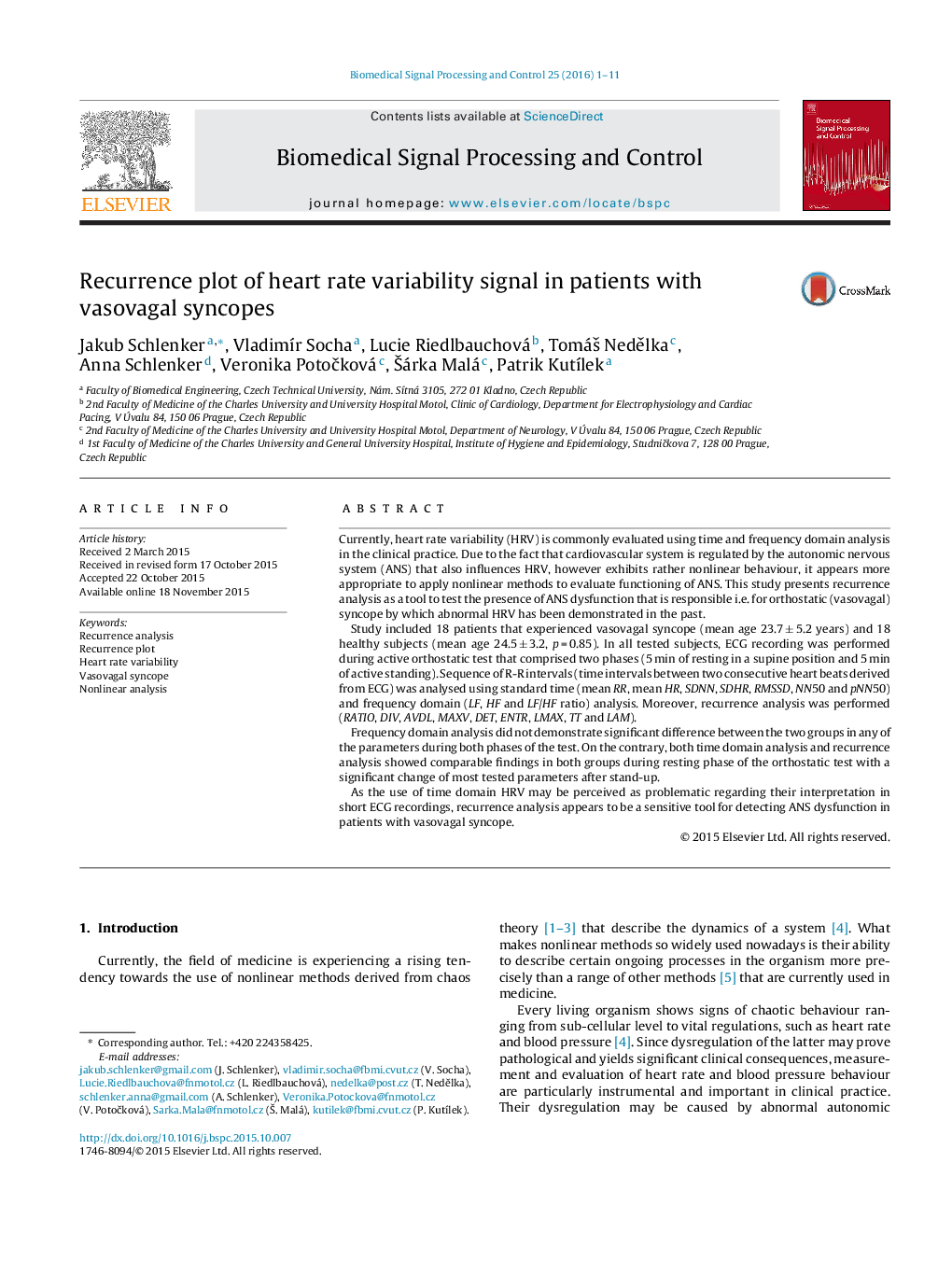| Article ID | Journal | Published Year | Pages | File Type |
|---|---|---|---|---|
| 557547 | Biomedical Signal Processing and Control | 2016 | 11 Pages |
•Recurrence analysis was applied for evaluation of HRV.•HRV analysis based on standard methods and nonlinear method was compared.•RQA results reflect lower heart rate variability in syncope group.
Currently, heart rate variability (HRV) is commonly evaluated using time and frequency domain analysis in the clinical practice. Due to the fact that cardiovascular system is regulated by the autonomic nervous system (ANS) that also influences HRV, however exhibits rather nonlinear behaviour, it appears more appropriate to apply nonlinear methods to evaluate functioning of ANS. This study presents recurrence analysis as a tool to test the presence of ANS dysfunction that is responsible i.e. for orthostatic (vasovagal) syncope by which abnormal HRV has been demonstrated in the past.Study included 18 patients that experienced vasovagal syncope (mean age 23.7 ± 5.2 years) and 18 healthy subjects (mean age 24.5 ± 3.2, p = 0.85). In all tested subjects, ECG recording was performed during active orthostatic test that comprised two phases (5 min of resting in a supine position and 5 min of active standing). Sequence of R-R intervals (time intervals between two consecutive heart beats derived from ECG) was analysed using standard time (mean RR, mean HR, SDNN, SDHR, RMSSD, NN50 and pNN50) and frequency domain (LF, HF and LF/HF ratio) analysis. Moreover, recurrence analysis was performed (RATIO, DIV, AVDL, MAXV, DET, ENTR, LMAX, TT and LAM).Frequency domain analysis did not demonstrate significant difference between the two groups in any of the parameters during both phases of the test. On the contrary, both time domain analysis and recurrence analysis showed comparable findings in both groups during resting phase of the orthostatic test with a significant change of most tested parameters after stand-up.As the use of time domain HRV may be perceived as problematic regarding their interpretation in short ECG recordings, recurrence analysis appears to be a sensitive tool for detecting ANS dysfunction in patients with vasovagal syncope.
